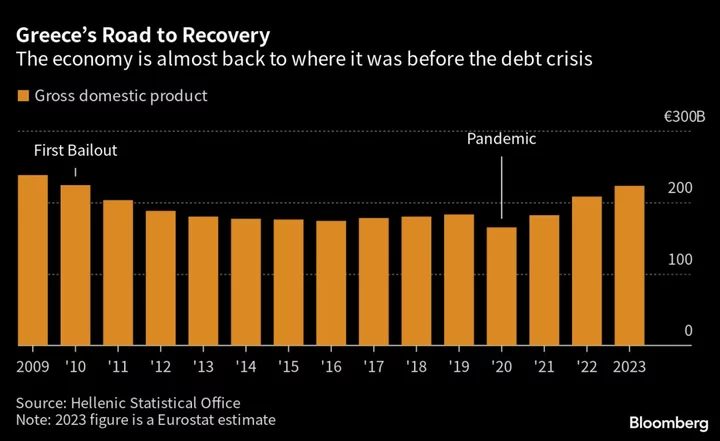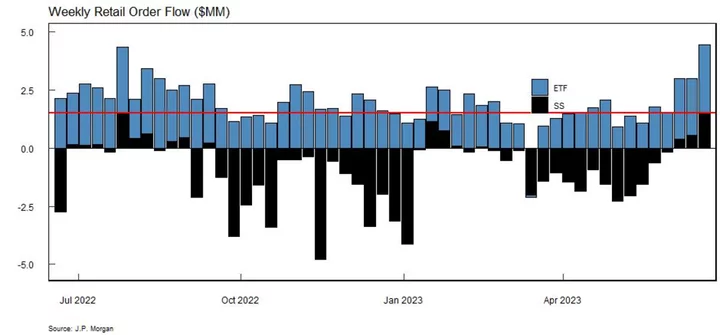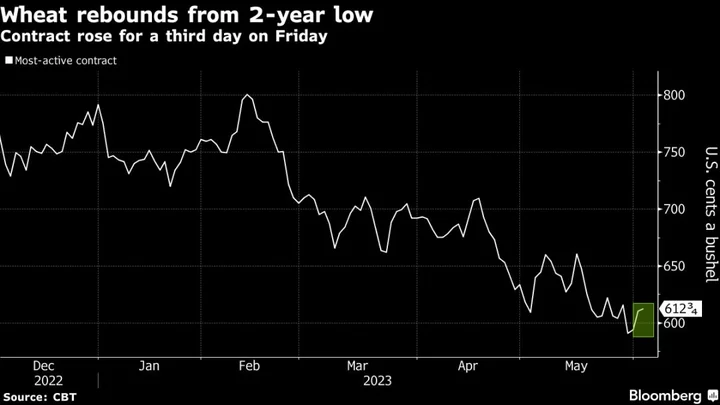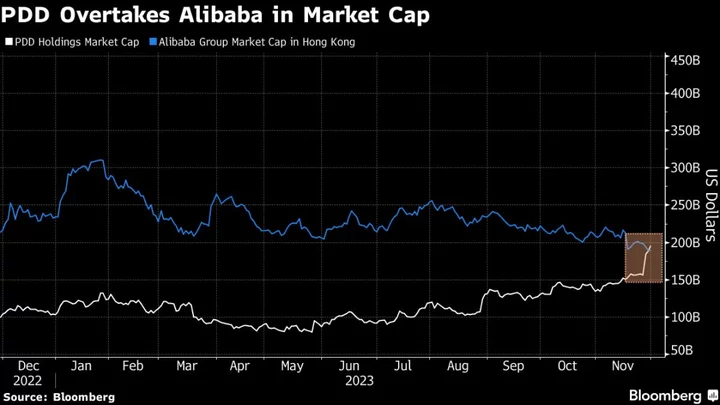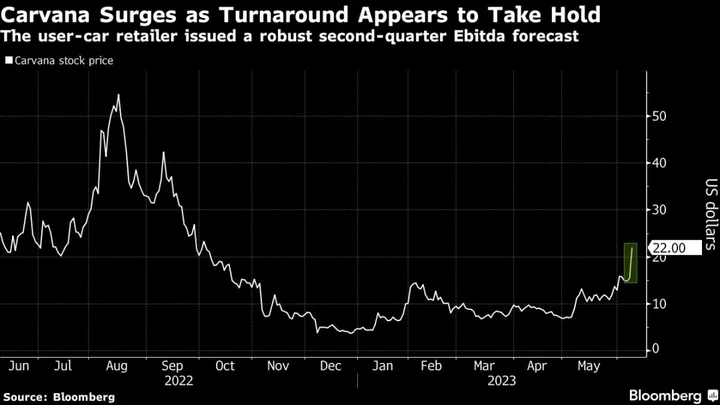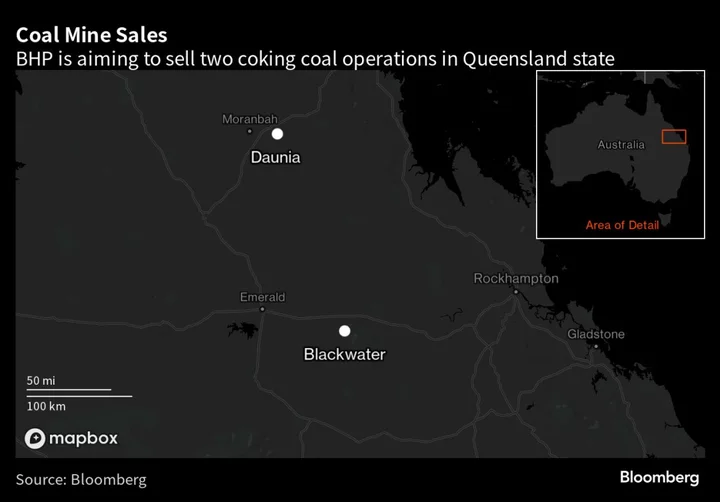Greece’s Kyriakos Mitsotakis is poised for a landslide victory in Sunday’s general election — the country’s second vote in just over a month — and the former prime minister will likely win enough seats in parliament to allow him to form a single-party government.
Mitsotakis’s center-right New Democracy will win between 40% and 44% of the vote, according to exit polls. Greece’s new electoral system awards as many as 50 seats to the winner, meaning the former premier should have a comfortable majority in the 300-seat chamber. The leftist Syriza party of ex-Premier Alexis Tsipras sank, getting 16.1% to 19.1%.
Markets have rallied behind the prospect of another four-year term for Mitsotakis, who made his stewardship of the economy a central pillar of his campaign. The Athens Stock Exchange General Index is up more than 36.4% this year and the yield on Greek 10-year bonds is around 3.6%, the lowest in about 10 months.
Voters were convinced by Mitsotakis’ pledge to build on one of the European Union’s fastest economic recoveries that has Greece debt on the cusp of a return to investment grade. And early concerns that voters would punish Mitsotakis for his handling of a train crash earlier this year that left 57 people dead, as well as a scandal in which the prime minister confirmed that his intelligence agency spied on an opposition candidate, never materialized.
The socialist Pasok party is expected to get between 10% and 13% of the vote; the Communist party 7.2% to 9.2% and the far-right Greek Solution 2.3% to 4.3%. The Spartans, a nationalist party, was seen entering parliament for the first time with 4% to 6%.
Confirmation of the exit results would see Mitsotakis sworn in as prime minister as early as Monday, at which point he would immediately appoint a new cabinet so he could travel to Brussels for a meeting of European Union leaders set for June 29-30.
The new government’s first challenge will be to get rid of the country’s junk-level sovereign debt rating, which Greece received 13 years ago during the global financial crisis. Ratings agencies are scheduled to update their assessments on Greece’s economy in the second half of the year, with firms including Fitch Ratings and Standard & Poors now placing the country one notch below investment grade.
Mitsotakis ran on Greece’s economic transformation, which has seen gross domestic product recover to just about where it was when Greece lost its ability to repay its debt in 2010. Unemployment has more than halved from its peak of 28%, and the country’s stocks and bonds have soared.
During the pre-election period, Mitsotakis called on Greeks to give him a strong majority so that he could reform the nation. He pledged to increase wages in the public sector and to boost the economy to help lift salaries of private-sector workers. He also promised to significantly upgrade the healthcare system and to speed-up the processes in court cases.
(Updates with more exit poll data, context from the fifth paragraph.)

